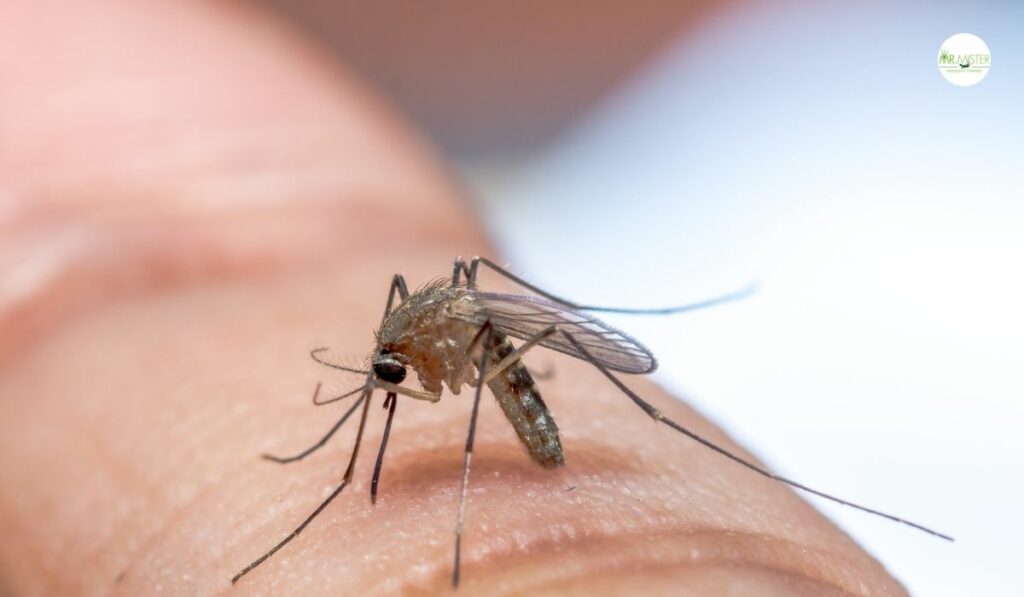Buzzing Harmony: Cultivating a Bee-Friendly Mosquito Solution
In the delicate ecosystem of our planet, every species plays a crucial role.
Bees, with their pollination prowess, are hailed as one of nature’s greatest assets, facilitating the growth of countless plants and crops.
However, their populations are under threat due to various factors, including habitat loss, pesticides, and climate change.
At the same time, mosquitoes, while often regarded as pests due to their nuisance and disease-spreading potential, also serve as vital components of ecosystems.
As we seek solutions to control mosquito populations, it’s imperative to find methods that do not harm bees and other beneficial insects.
This article explores the concept of cultivating a bee-friendly mosquito solution, aiming to strike a harmonious balance in our environment.
Understanding the Challenge:
Mosquitoes, infamous for their itchy bites and transmission of diseases such as malaria, dengue fever, and Zika virus, are a significant concern for public health worldwide.
Traditional mosquito control methods often involve the use of chemical pesticides, which not only pose risks to human health but also have detrimental effects on non-target organisms, including bees.
These pesticides can disrupt bee navigation, communication, and foraging behavior, ultimately jeopardizing their survival.
Furthermore, indiscriminate spraying can harm other beneficial insects, disrupting the delicate ecological balance.
The Role of Bees in Ecosystem Health:
Bees are indispensable pollinators, facilitating the reproduction of flowering plants, including many of the crops that sustain our global food supply.
Their pollination services contribute to biodiversity, ecosystem stability, and agricultural productivity.
Without bees, the world would face a significant decline in food production, leading to far-reaching consequences for human nutrition and food security.
Additionally, bees play a vital role in supporting other wildlife populations, as many animals rely on bee-pollinated plants for food and habitat.
Challenges in Mosquito Control:
Conventional mosquito control methods, such as chemical insecticides and larvicides, often come with unintended consequences.
These chemicals can contaminate water sources, harm aquatic organisms, and accumulate in the environment, posing long-term risks to ecosystems and human health.
Moreover, mosquitoes can develop resistance to chemical pesticides over time, rendering these solutions less effective.
As such, there is a growing need for sustainable and eco-friendly alternatives that can mitigate mosquito populations without harming beneficial insects like bees.
Promising Bee-Friendly Mosquito Solutions
In recent years, innovative approaches to mosquito control have emerged, focusing on ecological principles and minimizing harm to non-target species.
One such solution involves the use of biological control agents, such as Bacillus thuringiensis israelensis (Bti), a naturally occurring bacterium that explicitly targets mosquito larvae.
Unlike chemical pesticides, Bti is non-toxic to bees, fish, and other aquatic organisms, making it an environmentally friendly option for mosquito management.
Similarly, introducing mosquito-eating fish species into water bodies can provide effective control of mosquito larvae while preserving bee populations.
Another promising avenue is the deployment of mosquito traps and attractants that specifically target female mosquitoes, which are responsible for biting and transmitting diseases.
These traps utilize synthetic compounds or natural attractants, such as carbon dioxide and heat, to lure mosquitoes away from human hosts.
By selectively targeting mosquitoes while minimizing harm to beneficial insects, these traps offer a sustainable and bee-friendly approach to mosquito control.
Community Engagement and Education
Effective mosquito control strategies require collaboration and engagement at the community level.
By raising awareness about the importance of bees and the risks associated with conventional mosquito control methods, communities can advocate for bee-friendly alternatives.
Education campaigns can empower individuals to take proactive measures to reduce mosquito breeding sites in their surroundings, such as eliminating standing water and using mosquito-resistant plants in gardens.
The Role of Bees in Ecosystem Health
Bees are not just diligent workers; they are indispensable pollinators that contribute to the reproduction of flowering plants, including many of the crops that sustain our global food supply.
Their pollination services enhance biodiversity, stabilize ecosystems, and boost agricultural productivity.
Without bees, the world would face a significant decline in food production, leading to far-reaching consequences for human nutrition and food security.
Additionally, bees play a vital role in supporting other wildlife populations, as many animals rely on bee-pollinated plants for food and habitat.
Their intricate dance between flowers is not just a marvel to behold but a crucial process that sustains life on Earth.
Challenges in Mosquito Control
Conventional mosquito control methods, such as chemical insecticides and larvicides, often come with unintended consequences.
These chemicals can contaminate water sources, harm aquatic organisms, and persist in the environment, posing long-term risks to ecosystems and human health.
Moreover, mosquitoes can develop resistance to chemical pesticides over time, rendering these solutions less effective.
As such, there is a pressing need for sustainable and eco-friendly alternatives that can mitigate mosquito populations without harming beneficial insects like bees.
Promising Bee-Friendly Mosquito Solutions
In recent years, innovative approaches to mosquito control have emerged, emphasizing ecological principles and minimizing harm to non-target species.
One such solution involves the use of biological control agents, such as Bacillus thuringiensis israelensis (Bti), a naturally occurring bacterium that explicitly targets mosquito larvae.
Unlike chemical pesticides, Bti is non-toxic to bees, fish, and other aquatic organisms, making it an environmentally friendly option for mosquito management.
Similarly, introducing mosquito-eating fish species into water bodies can provide effective control of mosquito larvae while preserving bee populations.
Another promising avenue is the deployment of mosquito traps and attractants that specifically target female mosquitoes, which are responsible for biting and transmitting diseases.
These traps utilize synthetic compounds or natural attractants, such as carbon dioxide and heat, to lure mosquitoes away from human hosts.
By selectively targeting mosquitoes while minimizing harm to beneficial insects, these traps offer a sustainable and bee-friendly approach to mosquito control.
Community Engagement and Education
Effective mosquito control strategies require collaboration and engagement at the community level.
By raising awareness about the importance of bees and the risks associated with conventional mosquito control methods, communities can advocate for bee-friendly alternatives.
Education campaigns can empower individuals to take proactive measures to reduce mosquito breeding sites in their surroundings, such as eliminating standing water and using mosquito-resistant plants in gardens.
Conclusion
Cultivating a bee-friendly mosquito solution is not just a matter of environmental conservation but a necessity for safeguarding public health and ecosystem resilience.
By prioritizing the protection of bees and other beneficial insects in our mosquito control efforts, we can promote biodiversity, sustainable agriculture, and human well-being.
Through innovation, collaboration, and informed decision-making, we can achieve buzzing harmony in our ecosystems, where bees thrive and mosquitoes are managed responsibly.
To learn more about bee-friendly mosquito solutions or to get involved in conservation efforts, visit us at MR. MISTER MOSQUITO CONTROL.
FAQs
Why is it essential to consider bees when addressing mosquito control?
In the delicate balance of ecosystems, bees play a crucial role as pollinators, facilitating the growth of plants and crops essential for our food supply. However, traditional mosquito control methods often involve chemicals that harm not only mosquitoes but also beneficial insects like bees. By considering bees in mosquito control efforts, we can protect these vital pollinators while addressing mosquito-related concerns.
What are the risks associated with conventional mosquito control methods?
Conventional methods such as chemical pesticides and larvicides can have unintended consequences. These chemicals may contaminate water sources, harm aquatic life, and persist in the environment, posing long-term risks to ecosystems and human health. Additionally, mosquitoes can develop resistance to these chemicals over time, reducing their effectiveness.
How can biological control agents help in mosquito management without harming bees?
Biological control agents, such as Bacillus thuringiensis israelensis (Bti), offer a sustainable alternative to chemical pesticides. Bti is a naturally occurring bacterium that explicitly targets mosquito larvae, making it non-toxic to bees and other beneficial organisms. By using Bti and similar agents, we can effectively manage mosquito populations while preserving bee populations and ecological balance.
What role do mosquito traps play in bee-friendly mosquito control?
Mosquito traps and attractants are designed to target female mosquitoes, which are responsible for biting and transmitting diseases. These traps use synthetic compounds or natural attractants like carbon dioxide and heat to lure mosquitoes away from human hosts. By selectively targeting mosquitoes while minimizing harm to beneficial insects like bees, these traps offer an eco-friendly approach to mosquito control.
How can communities contribute to bee-friendly mosquito control?
Community engagement and education are essential in promoting bee-friendly mosquito control strategies. By raising awareness about the importance of bees and the risks associated with conventional mosquito control methods, communities can advocate for eco-friendly alternatives. Education campaigns can empower individuals to take proactive measures to reduce mosquito breeding sites, such as eliminating standing water and using mosquito-resistant plants in gardens.
* Schedule a Free Mosquito Control Consultation – 404-941-0720 *
* Guaranteed Results * 100% Biodegradable * Locally Owned







